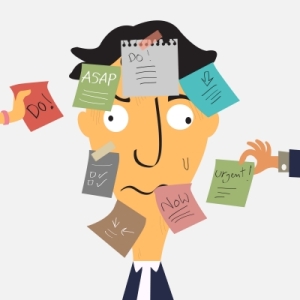
A mentoring relationship can lower anxiety for both mentor and mentee.
(pic credit: Rabia Elif Aksoy)
Mentoring junior colleagues can boost the mental health not just of the mentees but of the mentors themselves, according to a study by the University of Cambridge Judge Business School.
Anxiety, in particular, was seen to reduce in a mentoring programme for high-stress roles in the English police force (which was the main context for the study). Mentoring was shown to take a role that facilitated further discussion of tricky issues, and could involve other stakeholders and managers across the organisation, in a positive and meaningful way. While some officers may not want to speak up for fear of the mental health stigma, mentoring was able to help them deal with anxiety and other issues.
The study says: “Mentoring provided reassurance to the mentors by illuminating how other, often junior, officers also experience anxiety – thereby normalising their own experiences. By acknowledging that anxieties are common, both the mentees and mentors in this study appeared to be more comfortable discussing such issues and therefore in developing different coping mechanisms.”
Mentoring “fills a void”, says the study, and effectively helps to prevent mental health concerns from escalating. Above all, mentors and mentees reported the importance and relief of being listened to – and to recognise that other people were going through similar issues, helping them to feel more supported and consequently more effective in their role. Even more than that, the mentors found more meaning and purpose in their jobs.
Study co-author Dr Thomas Roulet, University Senior Lecturer in Organisation Theory at Cambridge Judge Business School, concludes: “The study suggests that a relatively inexpensive practice such as mentoring can help reduce anxiety among both senior and junior staff, and this could help organisations address the serious and costly workplace issues of anxiety and mental health. While the study focused on high-stress roles in the public eye, we believe that the findings may also apply to other occupations that also have anxiety-provoking pressures.”
The study is called Mentoring for mental health: A mixed-method study of the benefits of formal mentoring programmes in the English police force and is published in the Journal of Vocational Behavior.








